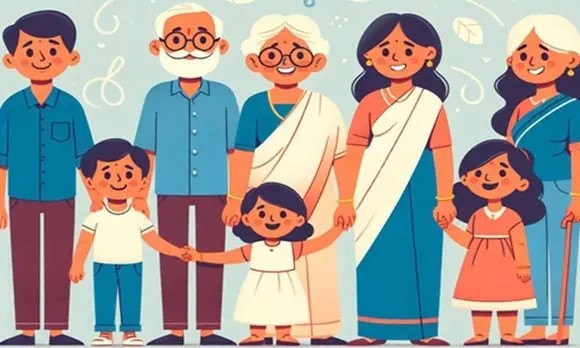Manipulative family members presume that they can contort the game of inheritance rights to exclusively serve their selfish ambitions

As Goa readies itself for the Exposition of a Saint who has been named as the Lord of Goa, even though his birth was in Javier, Spain and his death occurred in the Shangchuan Island, Jiangmen, China, the Goan habit of unifying against religious insults was on full display when aspersions were cast by a political aspirant upon the authenticity of the Saint’s human body that is preserved at the Basilica of Bom Jesus in Goa.
Selectively, and perhaps even by employing a form of controlled ignorance, family members of Goan joint family appear to find their interests budding when ancestral properties are due for succession, devolution, partition, mutation and sale.
The moral values of familial obligations lies squandered in acquiescence to the avarice that these selfish family members experience when they realise that their economically constrained lifestyles could be ameliorated by leveraging family wealth and in such cases their strategic ambitions of securing their lucrative futures easily find resonance in the business scope of builders and land developers who possess links to the very Goan leaders who sold Goa to Statehood and divested it of its special status as an Union Territory.
According to Soren Kaplan Ph.D in his article entitled: Identifying and Fixing Dysfunctional Organizational Cultures which was published in the Psychology Today on April 17, 2024:
"Dysfunctional unity" describes a situation where a group or organisation remains superficially united but struggles to function effectively due to underlying issues such as poor communication, conflicting interests, or unresolved conflicts. Despite appearing cohesive, the group cannot work towards common goals productively, often leading to tension, stagnation, and inefficiency (Kaplan, 2024).
Imagine this scenario in a Goan joint family which has most definitely manifested in a prominent family in the Salcete Taluka.
The progenitor of the extended joint family, was initially married to his first wife and from this marriage, he had begotten daughters who were born out of the first wife.
It is undeniable that this marriage took place during the Portuguese Colonial rule of Estado da India and resultantly, this matrimonial contract would be governed by the regime of communion of assets.
Subsequently, the first wife dies leaving behind the husband as a widower and the daughters from the first marriage. Upon the death of the first wife, the communion of assets ends in between the first wife and the widower.
Incidentally, these daughters from the first marriage were provided for by conferment of properties in calculation of their future inheritance from the estate of the progenitor.
Thereafter, the progenitor contracts a second marriage with his second wife and from this second marriage four sons are begotten out of this matrimonial bond with the second wife.
During the lifetime of the progenitor and during the pendency of the second marriage, the progenitor experienced a windfall of wealth generation through procurement of immovable properties and by setting up industries related to marble and granite slab manufacturing.
It was during the subsistence of the second marriage that the progenitor decided to execute a Deed of Gift of all his self acquired properties (which he owned in communion with his second wife) in favour of his three sons who were born out of wedlock with the second wife when the gift deed was being executed. The Deed of Gift was accepted by the Donees being the sons and the act of registration of the said Deed of Gift operated as lis pendens against all the other persons who were now deemed to have constructive notice by virtue of the act of registration of the said Deed of Gift.
But more importantly, the properties described in the Gift now vested in the Donees during the lifetime of the progenitor and the same assets were known to be self-acquired by the progenitor during the subsistence of his second marriage. So the dominion of ownership over self acquired assets would vest absolutely in the acquirer of these purchased assets and the timing of the acquisition being consonant with the continuance of the second marriage would be of relevance.
Thereafter, the progenitor’s second wife conceives a fourth child who was not existent when the Deed of Gift was executed by the progenitor.
And yet, when the progenitor passed away leaving behind his four sons and a widow from the second marriage, a blasphemous Partition Deed was executed between the sons of the progenitor and which included the widowed second wife as a confirming party.
The terms of the Deed of Partition were crafted with such discriminatory recitals that in today’s modern day legal conveyancing, the registering such a pretentious and exclusionary deed would never be registered by any sub-registrar in their right mind.
In the Deed of Partition, the two brothers along with their mother agree to consider the rights of the fourth brother who was unborn at the time of execution of the Deed of Gift and in the same deed the eldest son of the progenitor was made to unwillingly readjust his share in the Deed of Gift while executing a Deed of Partition where he only received an owelty amount in consideration of his share and no legal redress was ever referred to in a transparent legal manner whereby his initial share in the Deed of Gift was properly ascertained, partitioned and valued before the fourth brother’s share in the Partition Deed could devolve properly.
Herein lies a dysfunction in the unity of a Goan joint family whereby the manipulative family members presume that they can contort the game of inheritance rights to exclusively serve their own selfish ambitions when their own existence did not contribute in any way to the lifetime of the progenitor from whom they claim a share of inheritance through preferential succession.